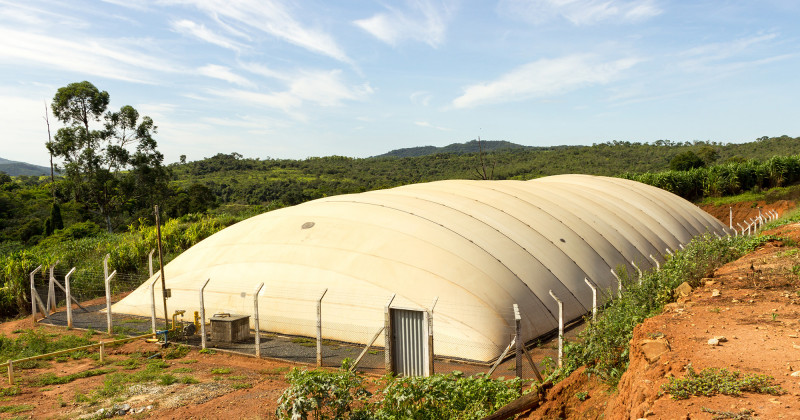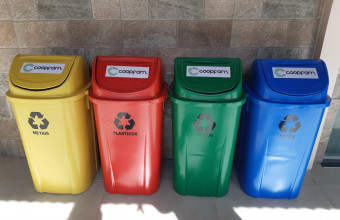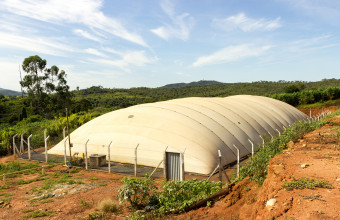Cogran (Cooperativa dos Granjeiros do Oeste de Minas), a cooperative or farmers from the Brazilian state of Minas Gerais, which operates in the breeding of birds, pigs, beef cattle, and corn cultivation, among other activities, is dedicated to enhancing production with a focus on quality, efficiency, and sustainability.
The energy policy of this agricultural cooperative plays a central role in this process and also contributes in growing the revenues of its members. Now, the cooperative has plans to further expand the principles of sustainability and green energy production.
Founded in 1980, Cogran brings together 249 members and supplies products both wholesale and retail, with a presence in various Brazilian states. In terms of volume, the cooperative produces, on average, 9,600 tons of pork products and slaughters more than 26 thousand tons of chicken per year.
According to Juliana Lemos Faria Gabriel, director of Cogran, “these numbers demonstrate the significant scale of Cogran’s production, consolidating its position as one of the largest cooperatives in Minas Gerais, with a presence in different market segments. The emphasis on values such as quality, sustainability, ethics, social responsibility, environmental preservation, innovation, and respect for the human being strengthens the cooperative’s image”.
Clean energy for production
In 2010, in a partnership with a Canadian company, Cogran started a project to install biodigesters on the properties of its members, aiming to generate biogas and mitigate pollution resulting from agricultural waste.
In addition to making Cogran’s production process cleaner, the initiative allowed the cooperative to enter the carbon credit market, benefiting its producers. However, after a recession in the carbon credit sector, the partner company left the market.
“At the same time, biogas-powered engines with good efficiency and durability became available in the market,” Juliana explains. With the adoption of this technology, the cooperative started to generate electricity using the biogas it produced as input. Nowadays, several cooperative properties are already self-sufficient in energy, and some even have surplus production, which is commercialized, generating more income.
“Cogran understands that producing sustainably is the only possible path, so we take all possible measures within our business units, as well as encourage and support our cooperative members to work with the same guidelines,” Juliana adds.
The cooperative also has two solar power plants – one installed at a convenience store and another at a Premix factory, which produces high-standard animal feed to meet all phases of poultry, pig, cattle, and pet handling.
Intercooperation is part of these efforts. Cogran joined MinasCoop Energia, a project led by the Ocemg System and focused on generating self-sufficient clean energy for Minas Gerais cooperatives, in order to allocate part of the surplus photovoltaic energy to a philanthropic entity in the city.
In total, the cooperative currently has 7 biodigesters, 8 generators, and produces biofertilizers and clean electricity for its members. “Our cooperative members have biogas energy generation with an installed capacity of 1,844,100 kW/month and photovoltaic 133,399 kW/month,” Juliana says.
Greener future
“One of our goals is to operate in the carbon market in the future. However, we are still in the process of understanding the parameters and validating the necessary inventory, as well as all the other stakeholders in the sector who are waiting for the legislation to be finalized,” the director adds.
Now, Cogran is considering the implementation of solar power plants in three units to supply 25% of their energy consumption.
“The idea is to maintain clean production practices and encourage these efforts, within ESG parameters, and for that, we are working on a plan for the next five years, which has sustainability as one of the priorities. Investments are being planned both in training and in the day-to-day operations of the farms,” Juliana concludes.





